There’s something about ’90s TV that sticks with you, long after the screen goes dark. Maybe it’s the unforgettable theme songs, the quirky characters, or the lines that became a part of pop culture. From the sharp wit of Friends to the iconic catchphrases of The Fresh Prince of Bel-Air, those lines didn’t just make us laugh—they became a way to connect with one another, offering comfort, humor, and sometimes, even life lessons.
In the era of flip phones and dial-up internet, TV was a huge part of our everyday lives, shaping the way we spoke and thought. The 30 nostalgic lines we’ve gathered from ’90s TV shows still carry a sense of warmth, transporting us back to simpler times. Whether it was a line you shared with friends or one that made you crack up every time you heard it, these memorable moments continue to hold a special place in our hearts.
In West Philadelphia, born and raised…
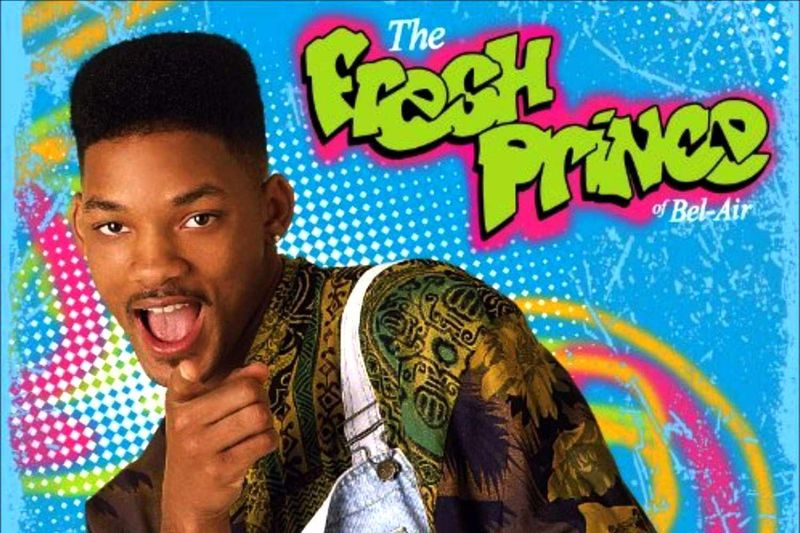
“The Fresh Prince of Bel-Air,” starring Will Smith, opened with a catchy theme song that began with “In West Philadelphia, born and raised…” This line is etched in the memories of ’90s kids. The show humorously depicted the cultural clashes between street-smart Will and his wealthy relatives.
The iconic opening captured youthful energy and optimism. Will’s journey from the tough streets to the luxurious Bel-Air mansion was both comedic and touching, making it a staple in the ’90s television landscape. Its relatability and humor continue to resonate with audiences today.
How you doin’?
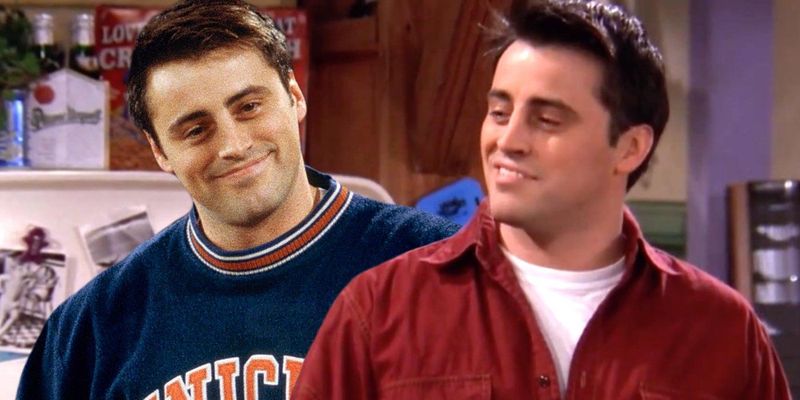
Joey Tribbiani’s famous line, “How you doin’?” from “Friends” became a hallmark of his character. His playful delivery turned this simple question into a universal flirtatious greeting. Joey’s lovable yet clueless personality made this phrase endearing. Even today, it’s used to break the ice or bring a smile.
The show’s camaraderie and humor struck a chord with viewers, reflecting the ideal friendships many aspired to have. Joey’s antics and charm made “Friends” an unforgettable part of television history, creating a legacy that continues to inspire sitcoms.
Did I do that?
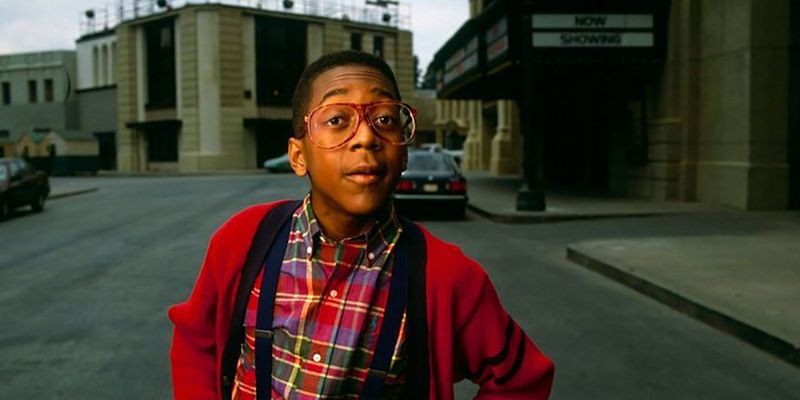
Steve Urkel’s classic line, “Did I do that?” from “Family Matters,” is synonymous with accidental chaos. Urkel’s nerdy charm and clumsiness often resulted in comic catastrophes, much to the chagrin of the Winslow family. His catchphrase, delivered with a high-pitched whine, became an instant favorite.
Urkel’s relentless pursuit of love and acceptance captured audiences’ hearts. The show highlighted themes of family, tolerance, and acceptance, making Urkel an endearing character. “Family Matters” showcased the importance of embracing differences, a message still relevant today.
No soup for you!
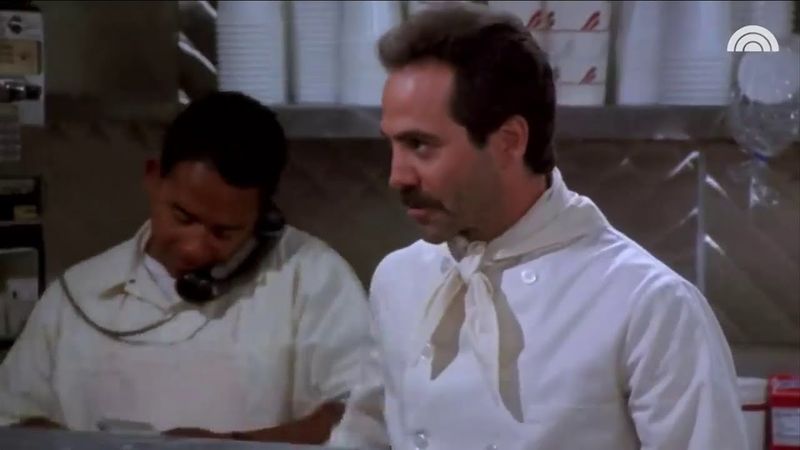
The infamous “No soup for you!” line from “Seinfeld” is a testament to the show’s unique humor. The Soup Nazi episode stood out for its absurdity and wit. This line became emblematic of the show’s ability to find humor in the mundane.
The strict, no-nonsense soup vendor demanded perfection, and his iconic phrase was both feared and revered by customers. “Seinfeld” captured the quirks of daily life, leaving a lasting impact on comedy. The Soup Nazi’s rigid rules and the characters’ reactions created one of the most memorable TV moments.
D’oh!

Homer Simpson’s exasperated “D’oh!” from “The Simpsons” is an enduring part of pop culture. This simple expression of frustration has transcended its origins to become an internationally recognized catchphrase. The show’s satirical take on family life, politics, and society made it a cultural phenomenon.
Homer, the bumbling patriarch, embodied the everyman’s struggles and triumphs. His memorable lines and antics continue to entertain audiences worldwide. “The Simpsons” redefined animated television, influencing countless shows and proving the lasting appeal of animated satire.
Resistance is futile.
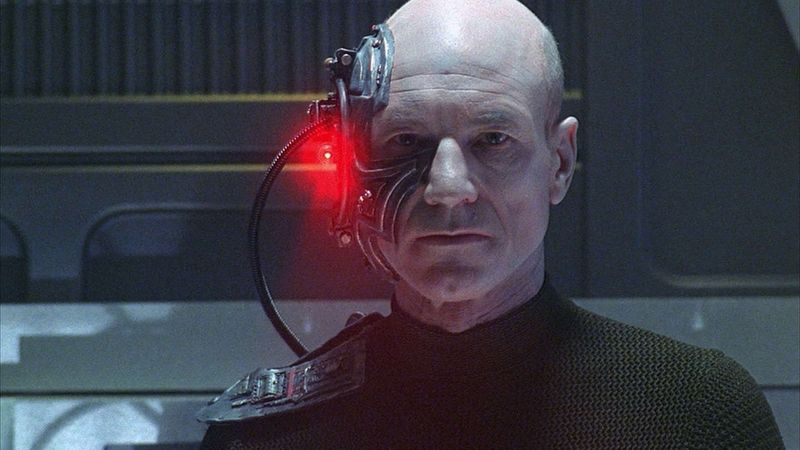
“Resistance is futile,” uttered by the Borg in “Star Trek: The Next Generation,” encapsulated the chilling nature of this formidable adversary. The Borg’s mission to assimilate other species into their collective consciousness was both terrifying and fascinating. This phrase symbolized their relentless pursuit of perfection.
The show’s exploration of humanity, technology, and identity resonated with audiences. The Borg challenged the characters’ ideals, prompting reflections on individuality and conformity. “Star Trek”‘s legacy of thought-provoking storytelling endures, inspiring generations of science fiction enthusiasts.
Yada, yada, yada.
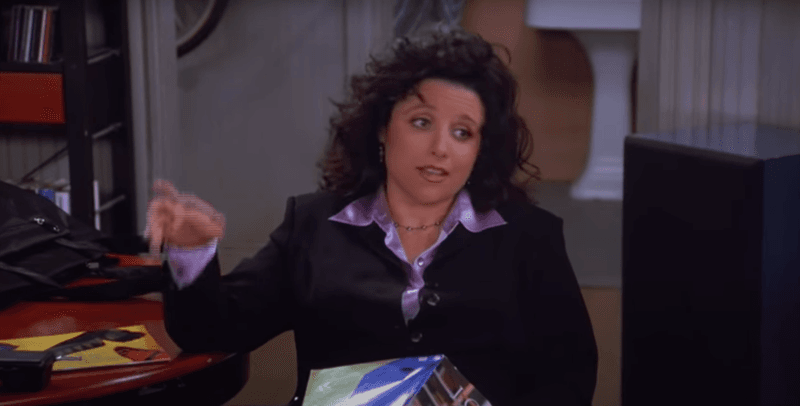
Elaine Benes’ “Yada, yada, yada” from “Seinfeld” became a shorthand for glossing over details. This comedic device encapsulated the show’s unique observational humor. By reducing events to “yada, yada, yada,” the characters humorously highlighted the irrelevance of certain details in storytelling.
“Seinfeld” thrived on its ability to find comedy in everyday conversations and situations. Elaine’s clever use of this phrase added to the show’s charm. The series’ influence on conversational humor is undeniable, with “yada, yada, yada” becoming part of the cultural lexicon.
I’m the baby, gotta love me!

Baby Sinclair’s exuberant proclamation, “I’m the baby, gotta love me!” from “Dinosaurs” was both endearing and amusing. This precocious, mischievous character captured the hearts of viewers with his antics. The show, set in a prehistoric world, cleverly mirrored modern society and family dynamics.
Baby Sinclair’s interactions with his family provided comic relief while highlighting relatable themes of parenting and sibling rivalry. “Dinosaurs” offered a unique blend of satire and humor, making Baby Sinclair’s catchphrase a standout moment that continues to bring smiles.
Ex-squeeze me? Baking powder?
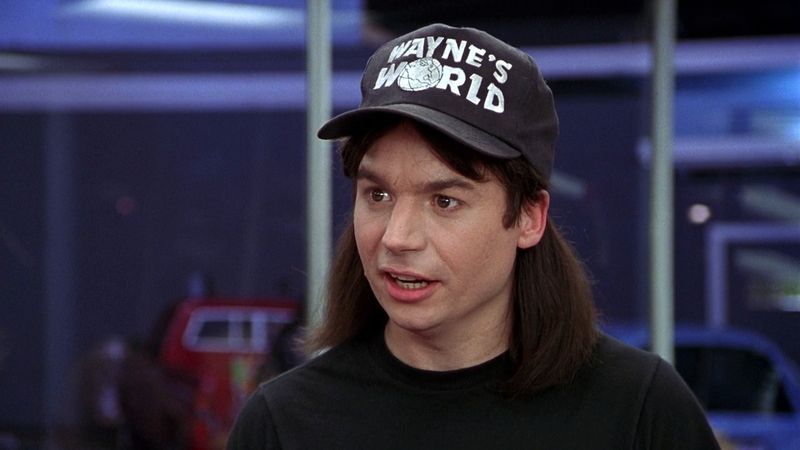
Wayne Campbell’s quirky “Ex-squeeze me? Baking powder?” from “Wayne’s World” showcased the character’s playful take on misunderstanding. This phrase became an amusing way to express confusion or disbelief. The show’s irreverent humor and pop culture references resonated with a generation.
Wayne and Garth’s adventures in their basement studio provided endless entertainment. Their unique language and comedic style left a lasting mark on ’90s comedy. Wayne’s catchphrase, delivered with his signature flair, added to the show’s charm and remains a beloved part of pop culture history.
Ay caramba!
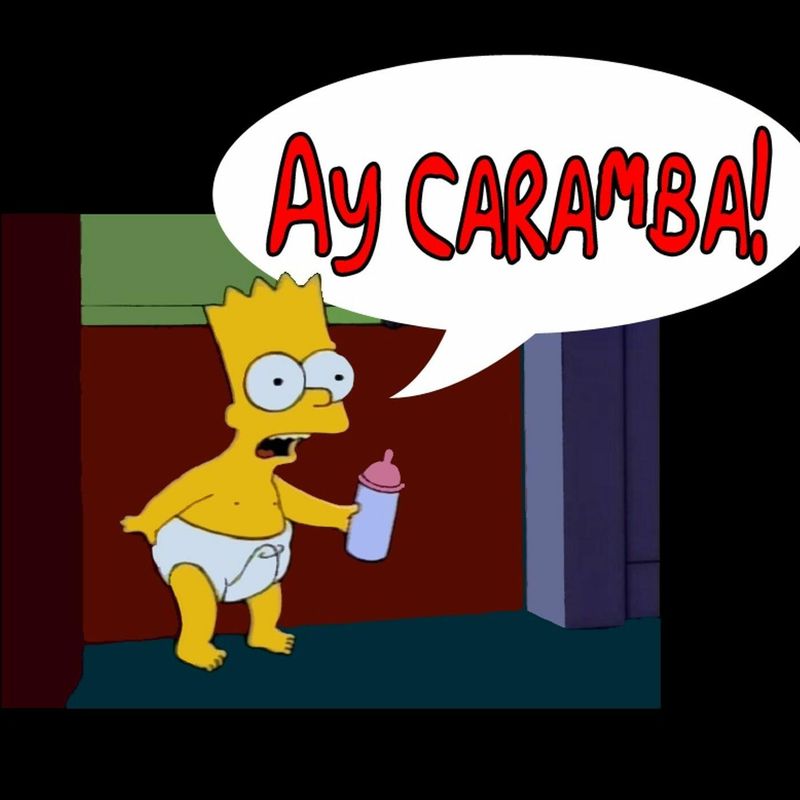
Bart Simpson’s “Ay caramba!” from “The Simpsons” captures his mischievous nature and penchant for trouble. This exclamation, often used when caught in a tricky situation, became one of Bart’s trademark lines. “The Simpsons” cleverly portrayed the ups and downs of family life, with Bart as the rebellious yet lovable troublemaker.
The show’s humor and wit made it a cultural touchstone. Bart’s catchphrase, delivered with youthful exuberance, added to his charm and continues to be a favorite among fans. “The Simpsons”‘ enduring appeal lies in its relatable characters and timeless humor.
Not that there’s anything wrong with that.
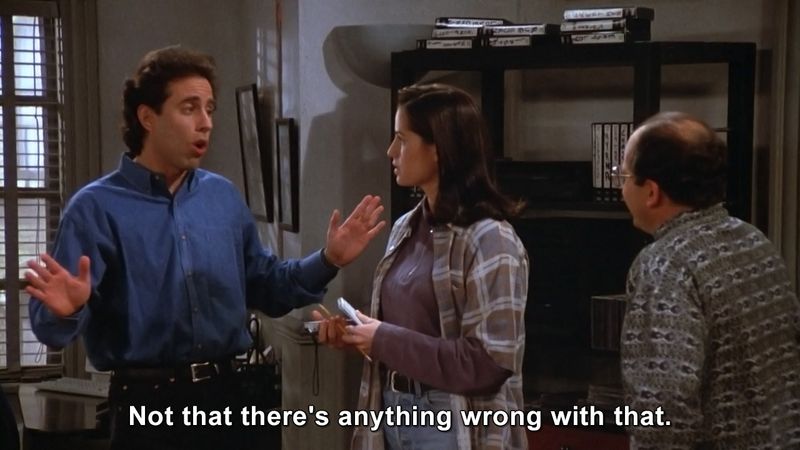
Jerry Seinfeld’s line, “Not that there’s anything wrong with that,” from “Seinfeld” humorously acknowledged societal perceptions. Used to dismiss implications of judgment, this phrase highlighted the show’s clever take on social norms. “Seinfeld” thrived on its ability to address topics with wit and humor, creating memorable moments.
Jerry’s delivery, often after a misunderstanding, added to the line’s comedic impact. “Seinfeld”‘s exploration of human behavior and relationships resonated with audiences, making this phrase a beloved part of television dialogue. Its impact continues to be felt in modern comedy.
Whoa!
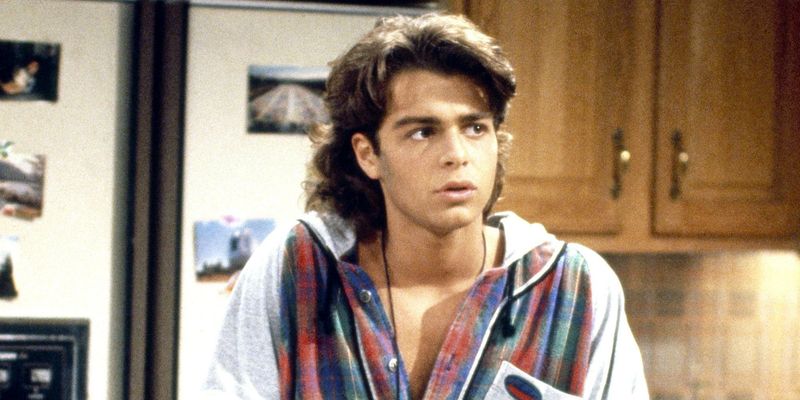
Joey Russo’s “Whoa!” from “Blossom” captured the character’s lovable cluelessness and surprise. This simple exclamation became his signature response to unexpected situations. Joey’s endearing personality and comedic timing made “Blossom” a memorable show.
The series tackled various family and teenage issues with humor and sensitivity. Joey’s catchphrase, delivered with genuine surprise, resonated with audiences, adding to the show’s charm. “Blossom” offered a relatable and entertaining portrayal of growing up, leaving a lasting impression on viewers and solidifying its place in ’90s pop culture.
Live long and prosper.
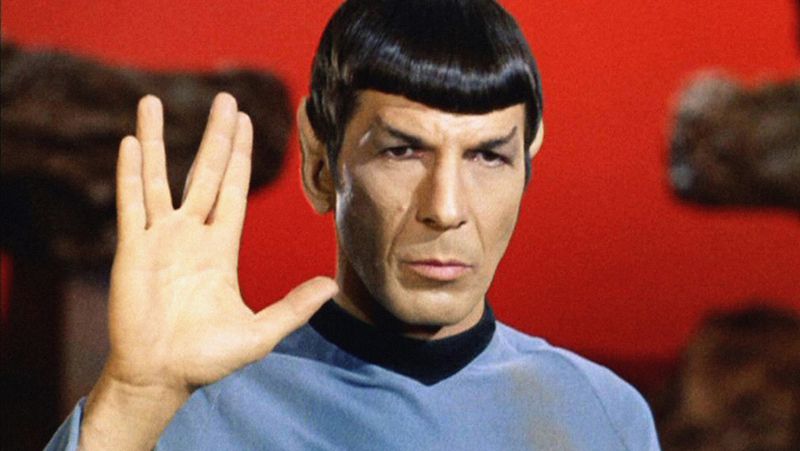
Spock’s iconic phrase, “Live long and prosper,” from “Star Trek” transcended the show’s universe to become a universal symbol of peace and goodwill. This Vulcan blessing, coupled with the distinctive hand gesture, embodied the show’s themes of exploration and understanding.
Spock, portrayed by Leonard Nimoy, became a cultural icon, representing logic, reason, and friendship. “Star Trek”‘s impact on science fiction and popular culture is immeasurable, with Spock’s phrase serving as a timeless reminder of the show’s optimistic vision for the future. Its legacy endures, inspiring new generations.
We were on a break!
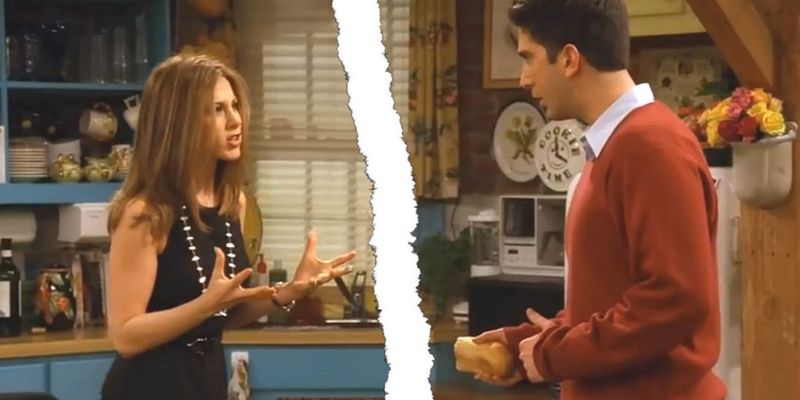
Ross Geller’s exclamation, “We were on a break!” from “Friends” became a defining moment in the show. This line encapsulated the complex dynamics between Ross and Rachel, contributing to one of television’s most beloved “will they or won’t they” relationships.
Ross’s earnest defense of his actions highlighted the show’s exploration of love, commitment, and misunderstanding. “Friends”‘ humor and relatable characters made it a cornerstone of ’90s television. Ross’s catchphrase, often quoted by fans, remains a humorous reminder of the show’s ability to capture the complexities of relationships.
Is that your final answer?
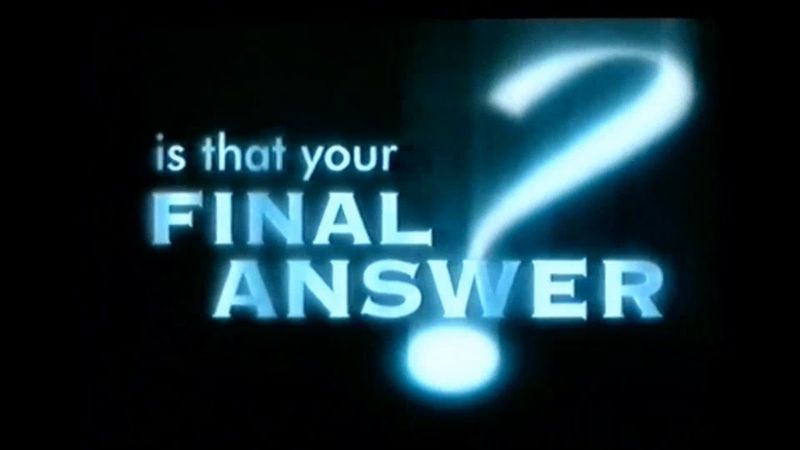
The phrase “Is that your final answer?” from “Who Wants to Be a Millionaire?” became synonymous with high-stakes decision-making. The show’s dramatic pauses and tense moments captivated audiences, making it a defining part of ’90s television.
This line, delivered by the host, marked a crucial moment in the game, adding to the suspense. “Who Wants to Be a Millionaire?” revolutionized the game show format, influencing countless others. The phrase remains a part of popular culture, symbolizing the importance of certainty and the excitement of risk-taking.
What’chu talkin’ ’bout, Willis?

Arnold Jackson’s line, “What’chu talkin’ ’bout, Willis?” from “Diff’rent Strokes” became an iconic catchphrase of the ’80s and ’90s. Arnold’s inquisitive nature and cheeky delivery made this phrase memorable. The show’s themes of family, acceptance, and social issues resonated with audiences.
Arnold’s interactions with his brother, Willis, provided both humor and heart. “Diff’rent Strokes” tackled important topics with sensitivity and warmth, leaving a lasting impact on viewers. Arnold’s catchphrase continues to be a beloved part of television history, embodying the show’s charm and wit.
Oh my God, they killed Kenny!
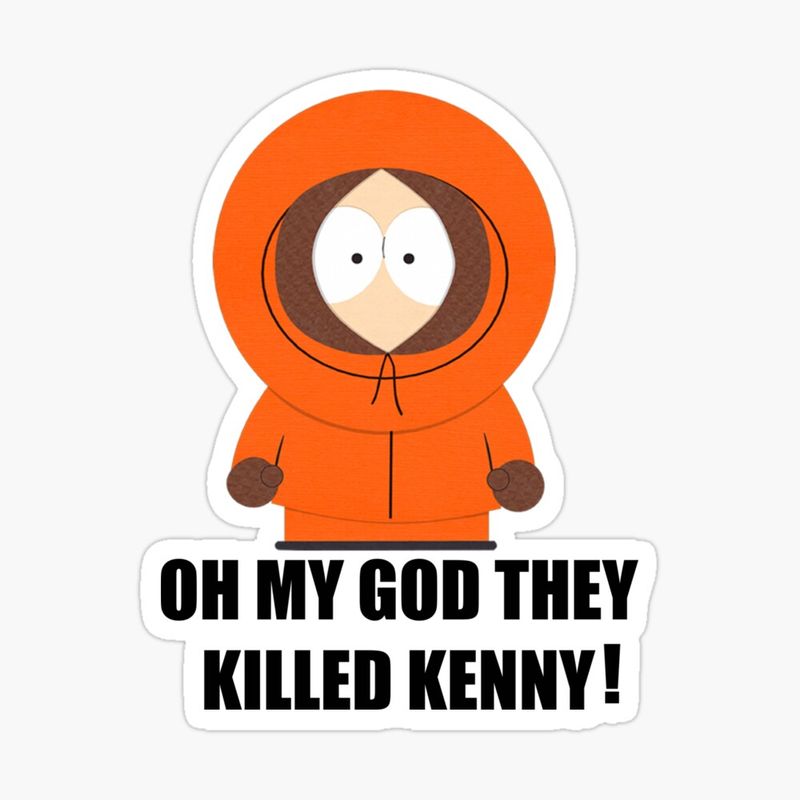
Stan and Kyle’s exclamation, “Oh my God, they killed Kenny!” from “South Park” became a recurring gag that encapsulated the show’s irreverent humor. Kenny’s frequent, often absurd deaths provided comic relief while satirizing various aspects of society. “South Park”‘s bold approach to controversial topics and its unique animation style made it a standout in ’90s television.
This catchphrase, delivered with exaggerated shock, became a signature element of the show. “South Park”‘s influence on animated comedy endures, with its willingness to push boundaries and provoke thought.
That’s what she said.
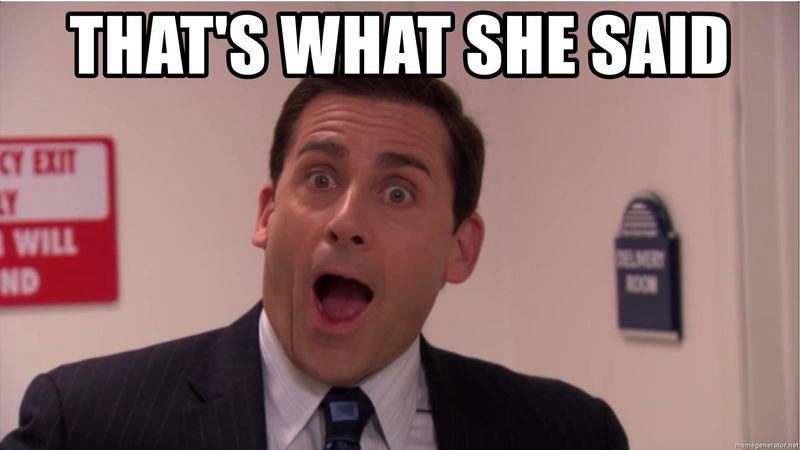
Michael Scott’s use of “That’s what she said” in “The Office” turned a simple phrase into comedic gold. This innuendo-laden quip became a hallmark of Michael’s humor, often used to diffuse awkward situations. “The Office” captured the mundane yet humorous aspects of office life, with Michael at the helm of countless memorable moments.
His playful delivery of this line added to the show’s charm and relatability. “The Office”‘s legacy as a beloved sitcom is undeniable, with “That’s what she said” remaining a favorite among fans for its timeless humor.
I am the one who knocks!
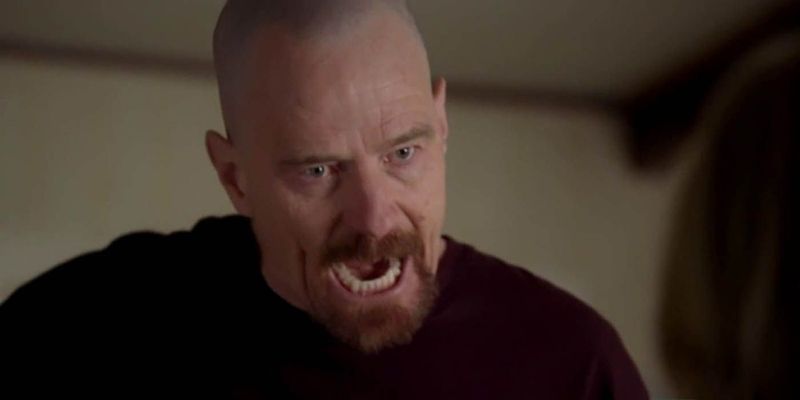
Walter White’s declaration, “I am the one who knocks!” from “Breaking Bad” signified his transformation from a humble teacher to a feared drug lord. This line captured the show’s intense exploration of morality, power, and identity. Walter’s journey into the criminal underworld was both captivating and tragic, reflecting the consequences of choices.
“Breaking Bad”‘s gripping storytelling and complex characters made it a critical and commercial success. Walter’s assertion of dominance became an unforgettable moment, symbolizing the show’s ability to challenge perceptions and evoke thought-provoking questions about human nature.
Eat my shorts!
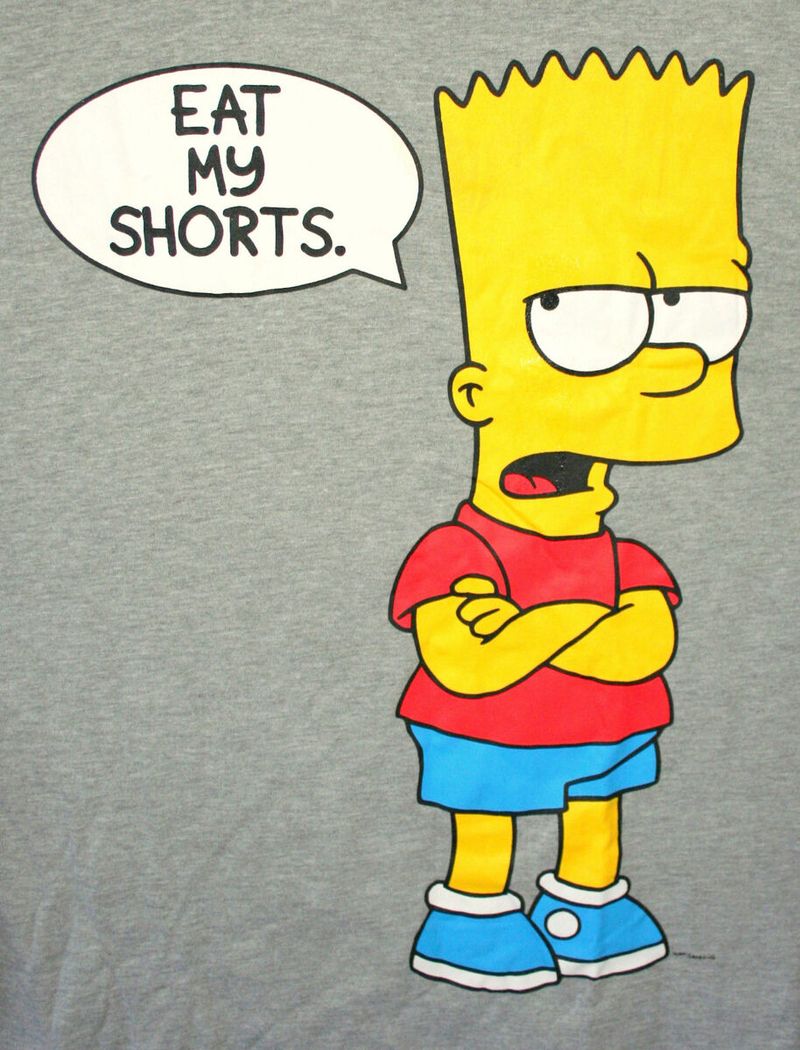
Bart Simpson’s rebellious “Eat my shorts!” from “The Simpsons” captured his defiant spirit and disdain for authority. This catchphrase, delivered with youthful irreverence, became a symbol of Bart’s mischievous personality. “The Simpsons” cleverly portrayed the ups and downs of family life, with Bart at the center of many comedic escapades.
His antics and memorable lines made him an enduring favorite among fans. “Eat my shorts!” remains a testament to Bart’s rebellious charm and the show’s lasting impact on popular culture. “The Simpsons”‘ wit and humor continue to entertain audiences worldwide.
Make it so.
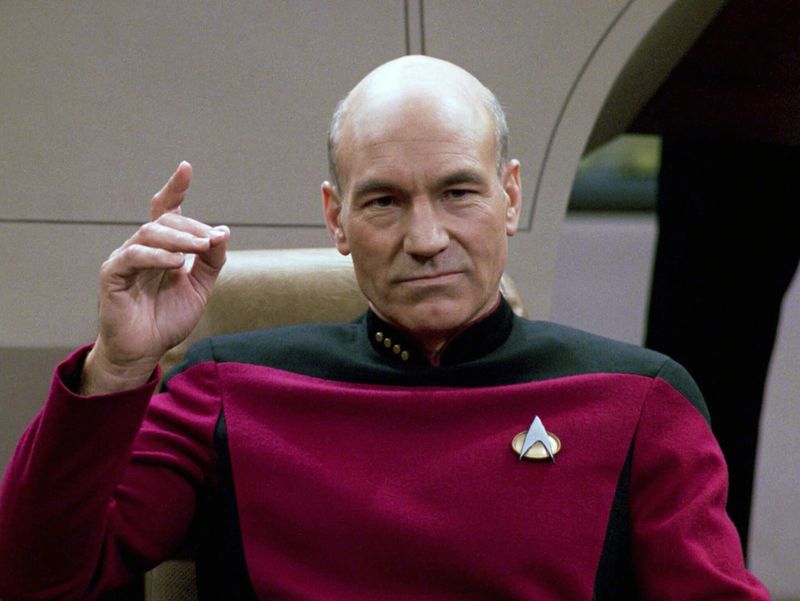
Captain Jean-Luc Picard’s “Make it so” from “Star Trek: The Next Generation” became synonymous with his leadership and decisiveness. This command, delivered with calm authority, highlighted Picard’s ability to inspire and lead his crew through challenging missions.
“Star Trek”‘s exploration of space, humanity, and ethics resonated with audiences, making it a beloved part of science fiction. Picard’s memorable catchphrase became a symbol of the show’s optimistic vision of the future. “Star Trek”‘s enduring appeal lies in its thought-provoking narratives and the strong leadership exemplified by characters like Picard.
Smelly cat, smelly cat, what are they feeding you?
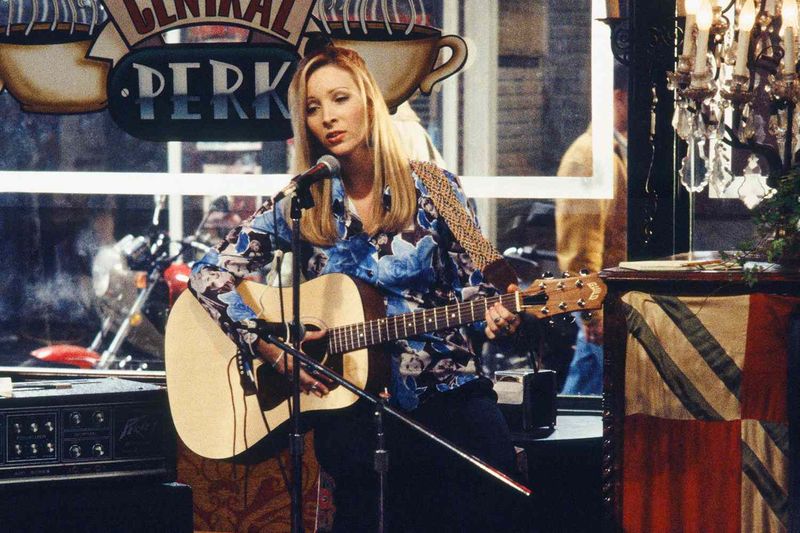
Phoebe Buffay’s quirky “Smelly Cat” song from “Friends” became an endearing and humorous part of the show. This tune, with its catchy and offbeat lyrics, captured Phoebe’s eccentric personality and unique musical style. “Friends”‘ exploration of friendship, love, and humor resonated with audiences worldwide.
Phoebe’s performances of “Smelly Cat” provided comic relief and added to the show’s charm. The song became a fan favorite, symbolizing Phoebe’s individuality and the show’s ability to blend humor with heartfelt moments. “Friends”‘ legacy as a beloved sitcom endures, with “Smelly Cat” remaining a memorable highlight.
Hi ho, Kermit the Frog here!
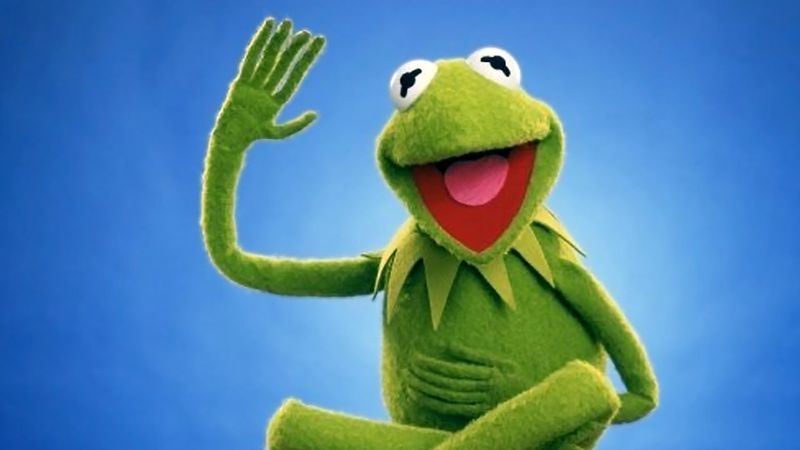
Kermit the Frog’s cheerful introduction, “Hi ho, Kermit the Frog here!” from “The Muppet Show” became a beloved part of television history. Kermit’s friendly demeanor and gentle humor made him an endearing character. “The Muppet Show”‘s blend of comedy, music, and puppetry captivated audiences of all ages.
Kermit’s catchphrase, delivered with warmth and charm, added to the show’s appeal. The Muppets’ legacy as entertainers and cultural icons continues to thrive, with Kermit’s introduction serving as a timeless reminder of the joy and creativity they brought to television. Their influence endures, inspiring new generations of viewers.
Cowabunga!
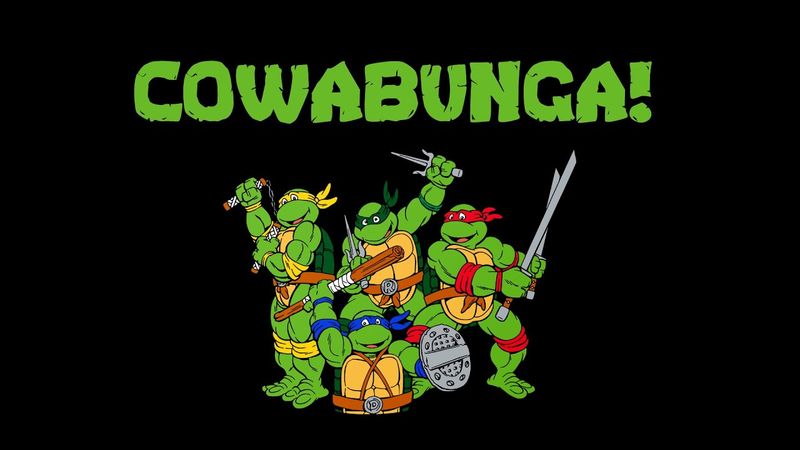
Michelangelo’s exclamation “Cowabunga!” from “Teenage Mutant Ninja Turtles” captured his fun-loving and adventurous spirit. This catchphrase, often shouted during action-packed scenes, became a hallmark of the character’s personality. “Teenage Mutant Ninja Turtles”‘ blend of action, humor, and camaraderie resonated with audiences, making it a staple of ’90s television.
Michelangelo’s youthful exuberance and love for pizza added to the show’s charm. “Cowabunga!” remains a favorite among fans, symbolizing the show’s enduring appeal and the Turtles’ legacy as beloved pop culture icons. Their adventures continue to captivate new generations.
The truth is out there.
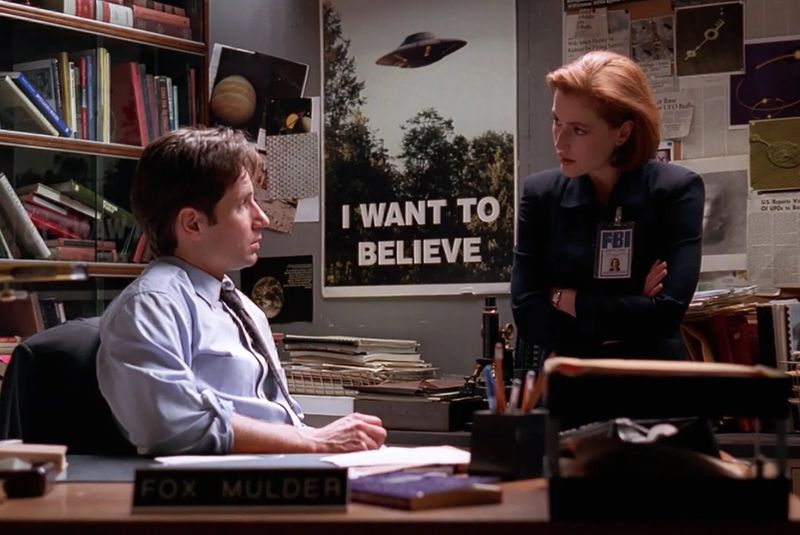
Fox Mulder’s phrase, “The truth is out there,” from “The X-Files” encapsulated the show’s exploration of mystery and conspiracy. This line, often linked to the search for extraterrestrial life, became a defining aspect of Mulder’s character. “The X-Files”‘ blend of science fiction and thriller elements captivated audiences, making it a landmark in ’90s television.
Mulder’s relentless pursuit of truth and his partnership with Dana Scully created a compelling dynamic. “The truth is out there” remains a symbol of the show’s intrigue and its impact on the genre. Its legacy continues to influence contemporary storytelling.
You’re fired!
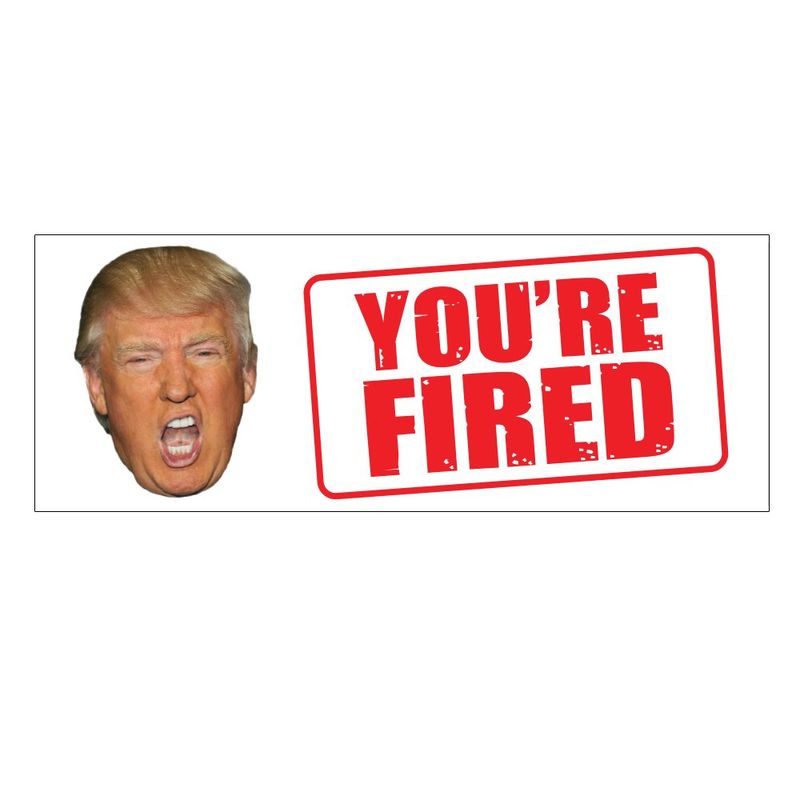
Donald Trump’s blunt “You’re fired!” from “The Apprentice” became a catchphrase synonymous with elimination and accountability. This line, delivered with authority, added drama to the show’s competitive format. “The Apprentice” offered a glimpse into the business world, with contestants vying for success under Trump’s scrutiny.
His catchphrase became a cultural phenomenon, influencing language and popular media. “The Apprentice”‘s blend of reality TV and business strategy captivated audiences, making it a standout in early 2000s television. Trump’s assertive declaration remains a memorable part of the show’s legacy.
I love it when a plan comes together.
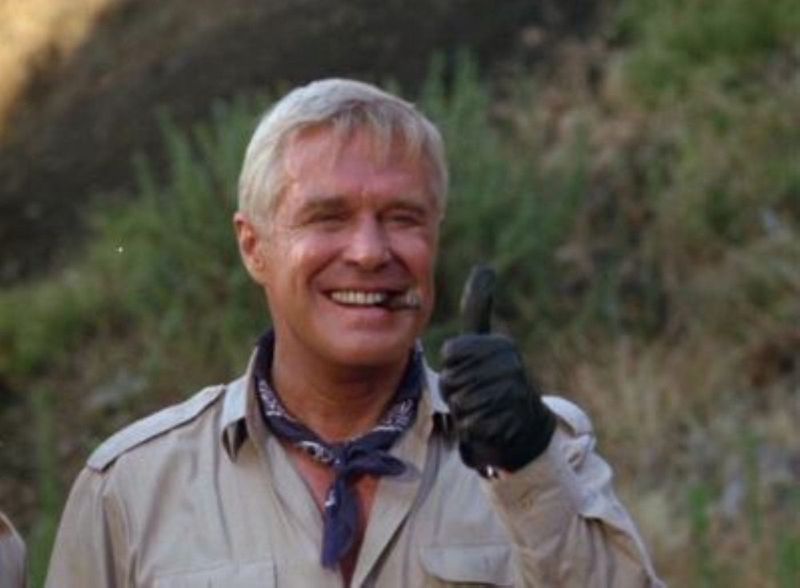
Colonel John “Hannibal” Smith’s phrase, “I love it when a plan comes together,” from “The A-Team” embodied his strategic brilliance and leadership. This line, often delivered with a satisfied grin, became a hallmark of the show’s action-packed narrative.
“The A-Team”‘s blend of humor, teamwork, and adventure resonated with audiences, making it a beloved part of ’80s and ’90s television. Hannibal’s catchphrase symbolized the team’s resourcefulness and camaraderie. “The A-Team”‘s enduring appeal lies in its thrilling escapades and memorable characters, with Hannibal’s line serving as a testament to their ingenuity and success.
Beam me up, Scotty.
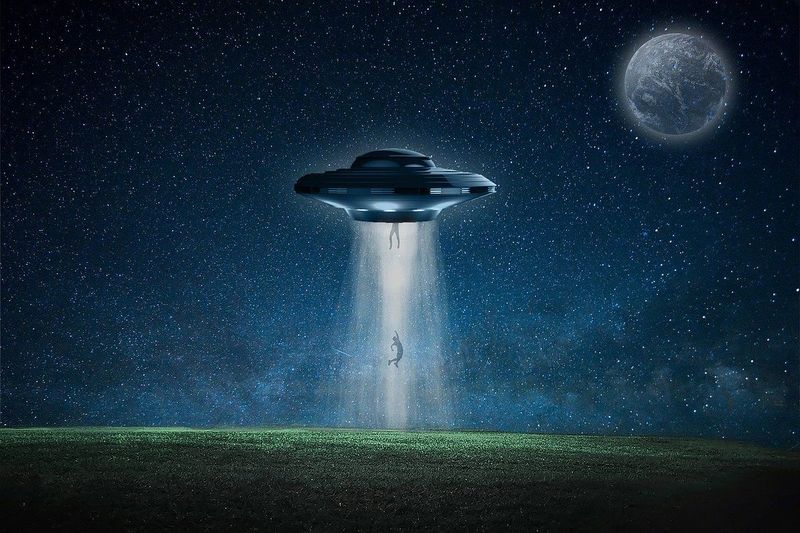
The phrase “Beam me up, Scotty” from “Star Trek” became synonymous with futuristic travel and exploration. Although never uttered verbatim in the original series, this line captured the show’s imaginative vision. The concept of teleportation fascinated audiences, becoming a symbol of “Star Trek”‘s innovative ideas.
Captain Kirk’s leadership and the crew’s adventures in space exploration inspired generations of science fiction enthusiasts. “Star Trek”‘s legacy as a groundbreaking series endures, with its influence seen in subsequent sci-fi media. The phrase remains a cultural touchstone, representing the show’s pioneering spirit and enduring impact.
